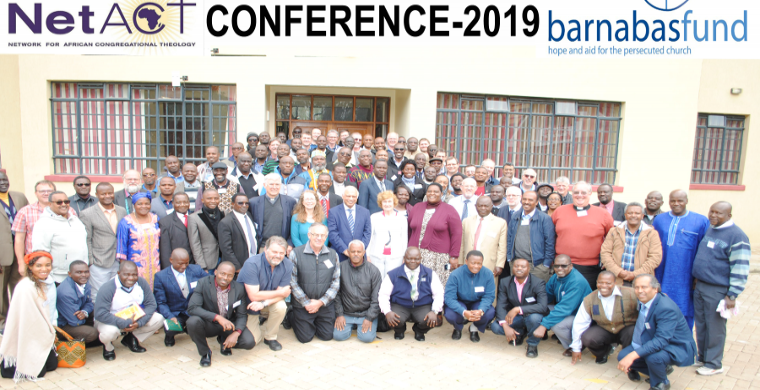COVID-19 locks down theological education in Africa
By Jurgen Hendriks
Church of England Newspaper
May 15 2020
Over the past ten days, I have helped 42 theological schools across Africa in applying for assistance from Barnabas Fund. Last night (Friday, May 8th) I received an urgent, heart-wrenching email from the principal of one such school in Luanda, Angola: "Have you heard anything yet, brother? We are running out of food and bottled water."
Angola
Earlier this principal explained that, in a locked-down Luanda people are more afraid of dying of hunger than from the virus. "We are trapped, we cannot get to our farms. Taxis are not allowed to operate and we are not allowed to leave Luanda. Prices of everything have escalated." These words came from someone who lives in the city with the dubious distinction of being the most expensive capital city in the world!
Let me clarify the situation in terms of the staff at this Luanda based theological school. Like most Africans, the lecturers at our schools are members of extended, but close-knit, families sharing communal land. Holiday periods coincide with planting and harvesting seasons. Families travel "home" (the farms) to do their part during these seasons. In turn, family living on the communal land provide their city kin with food -- often transported by taxi. Money-earning, city-dwelling family supply those on the farm with cash to take care of their needs -- anything from clothing to airtime. Covid-19 lockdown implies no food for the city-dwellers, or no money for those on the farm.
The city-workers ran into a "no money" dilemma because of the way church finances work in Angola (and at most of our theological schools in Africa). On Sunday's members bring tithes to church -- money or food (a dozen eggs, a chicken or two, or some vegetables). This is mainly for the upkeep of the pastor and his family or is sold as the need may be. With the prohibition of worship services, the local pastor thus has no steady income. And, when local tithes dry up, so do contributions to the central church offices and the salaries of the church officers at that (central) level. Further down the pecking order and among the first not to receive salaries, are the lecturers who serve in seminaries of the churches. The main part of these lecturers' salaries is funded directly by student fees. The lockdown suspension of classes abruptly turns off this stream of income as well.
Airtime and Internet
"No money" in turn makes airtime unaffordable. Mobile phone communication is as essential a part of life in Africa as food and water. Many of the Luanda staff members are running out of airtime and as such are cut off from their family and farm and also from their students.
The plight in Luanda is shared by theological seminaries across Africa. According to the rector of a school in southeast Nigeria, the last time his staff was paid, was at the end of January! However, he says, "We look on the bright side" as the surrounding villages, where theology students implemented community development principles, are now supplying the lecturers with some food. Lecturers and students are grateful that the school still manages to pay for internet connectivity and maintaining its server. Thus, communication between staff and students continues, as does online teaching and studying.
Nigeria and South Sudan
Another principal, at a large Baptist seminary in Nigeria, despondently describes how Fulani (Muslim) herders drove their cattle onto the seminary's farm, devastating the ripening harvest (a central source of food for seminarians and staff). The police ignored their call for help. The school later received a measly US$ 104 compensation for their losses from government! Many schools have similar stories.
Confronting the Fulani amounts to suicide -- a lesson learned in Benue State, Nigeria, by another seminary where the Fulani herdmen burned down churches when Christian farmers opposed the destruction of their crops. Many of the farmers themselves were killed in the process.
The situation of theological schools in South Sudan is dire. South Sudan is recovering after years of North-South/Muslim-Christian war prior to independence in 2011. Devastating tribal warfare followed independence. This year not only brought Covid-19 to South Sudan, but the country also suffers from severe drought and a locust plague. Notwithstanding all these problems, the principal of Nile theological seminary in Juba, who has to walk to the nearest internet cafe to do email, remarks: "If only we had Wi-Fi at the seminary, life will be wonderful!"
Every school in every country has stories of hardship, endurance and faith to tell. Help by organizations like Barnabas Fund keep hope alive. A recurring phrase in the emails over the past two weeks dealing with arrangements of how to support the theological schools were: "Praise the Lord, we are not forgotten!"
Professor Jurgens Hendriks is Professor, Department of Practical Theology and Missiology (Emeritus), Faculty of Theology, Stellenbosch University and Programme Co-Ordinator of the Network for African Congregational Theology, Africa, a network of over 50 theological colleges and universities.














